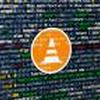VideoLAN has addressed a critical double-free vulnerability in the VLC media player that could allow an attacker to execute arbitrary code on target systems. This security loophole can be used to plant malware in the computer where the media player is being used.
The security flaws on versions 3.0.6 and earlier of the software can enable hackers to load types of video files that can execute arbitrary code. Tracked as CVE-2019-12874, the security flaw features a CVSS v3 score of 9.8. The bug resides in the zlib_decompress_extra function of the VLC media player and could be triggered during the parsing of a malformed MKV file type within the Matroska demuxer.
Discovered by Symeon Paraschoudis from Pen Test Partners, the issue allows a remote attacker to create a specially crafted file to trigger a double free in zlib_decompress_extra() (demux/mkv/utils.cpp). The vulnerability has been addressed with the release of VLC 3.0.7, which also fixes a high-severity heap buffer overflow, along with various other vulnerabilities. Tracked as CVE-2019-5439 and residing in the ReadFrame (demux/avi/avi.c) function, the buffer overflow could be exploited through a specially crafted .avi file. The bug was reported through HackerOne, as part of a bug bounty program run by the European Union. The issue is that the ReadFrame function uses a variable obtained directly from the file. Because no strict check is performed before the memory operation (memmove, memcpy), a buffer overflow could be triggered.
“If successful, a malicious third party could trigger either a crash of VLC or an arbitrary code execution with the privileges of the target user,” VideoLAN explains in an advisory detailing both security bugs.
To successfully exploit the vulnerabilities, an attacker would have to trick the user into explicitly opening a specially crafted file or stream. While ASLR and DEP help reduce exposure, they may be bypassed, the advisory reads.
“The user should refrain from opening files from untrusted third parties or accessing untrusted remote sites (or disable the VLC browser plugins), until the patch is applied,” VideoLAN recommends.
Critical Vulnerabilities in VLC Media Player Spotted and Patched

